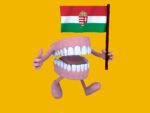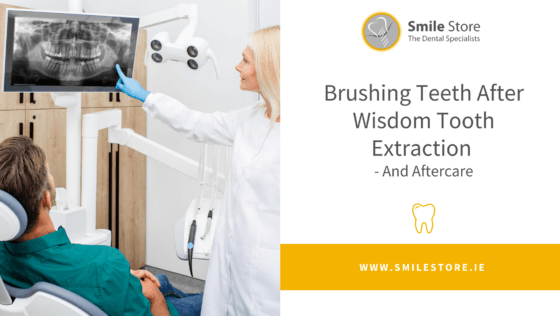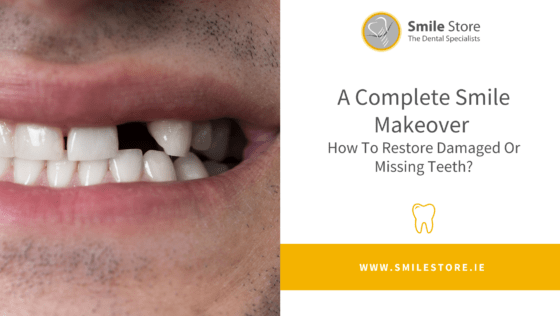A common question that patients ask their dentists after having their wisdom teeth removed is whether they can brush their teeth normally or should they wait for some time. If you have also recently undergone wisdom tooth removal and are searching for an answer to this question, this blog is for you. So, continue reading to learn everything you need to know about wisdom tooth removal aftercare.
Can I Use Any Toothpaste After The Day Of 4 Teeth Extraction?
Dentists recommend not using toothpaste for 3-4 days after wisdom tooth removal. Instead, you can brush your teeth and the extraction site using a soft-bristled toothbrush and using gentle force, without applying toothpaste. The reason toothpaste should not be used for the first 4 days after a wisdom tooth extraction is that doing so requires the toothpaste to be spat out. Unfortunately, if the toothpaste is spat out, it puts pressure on the blood clot that forms at the surgical site and may lead to its dislodging. The blood clot that forms at the surgical site is key to optimal bone and soft tissue healing. That is why dentists recommend not using toothpaste for 3-4 days after third molar surgery.
How Do I Brush My Teeth After A Tooth Extraction?
As discussed earlier, a blood clot forms at the surgical site following a tooth extraction. This blood plays a vital role in the optimal healing of the bone and surrounding tissues. Therefore, to prevent the blood clot from dislodging, several things must be kept in mind after tooth extraction. First, one should avoid brushing or rinsing the mouth for the first 24 hours after the surgery. Afterwards, a toothbrush can be used without toothpaste to prevent it from getting too close to the surgical site. Also, you should avoid swishing in the oral cavity or using mouthwash for a few days as it can also disrupt the blood clot.
What Is The Yellow Stuff Coming Out Of My Wisdom Tooth Hole?
The exudation of yellow-coloured fluid from a wisdom tooth extraction site could be various reasons. First, the yellow fluid might be pus or inflammatory fluid, which indicates underlying infection. In other cases, oozing a yellow- or white-coloured substance from a wisdom tooth extraction site could be because of the normal healing process. To help subside the inflammation, you may rinse your mouth with salt water. In case the appearance of the yellow substance is accompanied by pain, bad breath, discomfort and fever, you shoud consult your dentist as it may be due to another condition called a “dry socket”, which indicates poor healing of the surgical site due to the dislodging of the blood clot.
What Is The Best Way To Clean Wisdom Teeth?
Wisdom teeth are often difficult to clean as they lie at the back of the mouth. As a result, the bristles of a toothbrush cannot clean the back surfaces of the wisdom teeth, making them vulnerable to tooth decay, periodontal disease, and pericoronitis (if wholly or partially unerupted). To ensure that your wisdom teeth remain healthy and cavity-free, you should ensure optimal oral hygiene through regular brushing and flossing. You can also use Waterpik, a device that squirts a pressurised stream of water and prevents plaque and tartar formation. Furthermore, regular dental checkups also go a long way in keeping your third molars healthy and cavity-free.
How Does A Dislodged Blood Clot Look From A Teeth Extraction?
The development of a high-quality blood clot after a tooth extraction is essential for optimal healing. In case the blood fails to develop or get dislodged afterwards, it can significantly affect the healing process, and this condition is known as a dry socket. An extraction site with a dislodged clot often appears full of food debris. Besides, dry socket results in severe pain and also bad breath due to the decomposition of the food particles in the tooth socket.
How To Treat A Swollen Face After Removing Wisdom Teeth?
If someone has a swollen face after wisdom tooth extraction, it indicates an underlying infection. The swelling one or both sides of the face indicates the presence of pus due to inflammation. In these situations, dentists place surgical drains that help with the removal of the pus. At the same time, they prescribe antibiotics to subside the severity of the infection. Painkillers are also given to reduce the pain and discomfort.
What Is The After Care Of Wisdom Teeth Removal?
There are several things you should take care of after getting a wisdom tooth removed. These include:
- Avoid using toothpaste for the first 2-3 days
- Avoid touching the extraction site with your fingers or tongue
- Eat a soft diet such as cereals, boiled vegetables and mashed fruits or potatoes
- Avoid smoking for a few weeks after surgery
- Gently rinse your mouth with lukewarm salt water. It helps in reducing the pain and swelling
How To Recover Quickly From Getting My Wisdom Teeth Removed?
It is common to have some pain, swelling, and discomfort after oral surgery. However, there are certain measures you can undertake to accelerate the healing process. These include:
- Maintaining optimal oral hygiene
- Salt water rinses
- Taking a soft diet
- Painkillers to reduce the pain and swelling
If you frequently experience swelling and discomfort in one of your wisdom teeth, it might be because of a condition called pericoronitis. Such wisdom teeth often need to be removed. So, if you’re fed up of wisdom tooth infections, book an appontment with us today and let our experienced and qualified dentists fix this issue permanently and painlessly.
Latest posts
Tax Relief
Tax relief is available on many different dental procedures available at Smile Store – The Dental Specialists.
Call backContact us
Request a call back to met one of our friendly staff!


















